Life in a Bedouin village that's been destroyed 101 times
The Israeli government has demolished this tiny village time and time again. Each time, the residents rebuild.

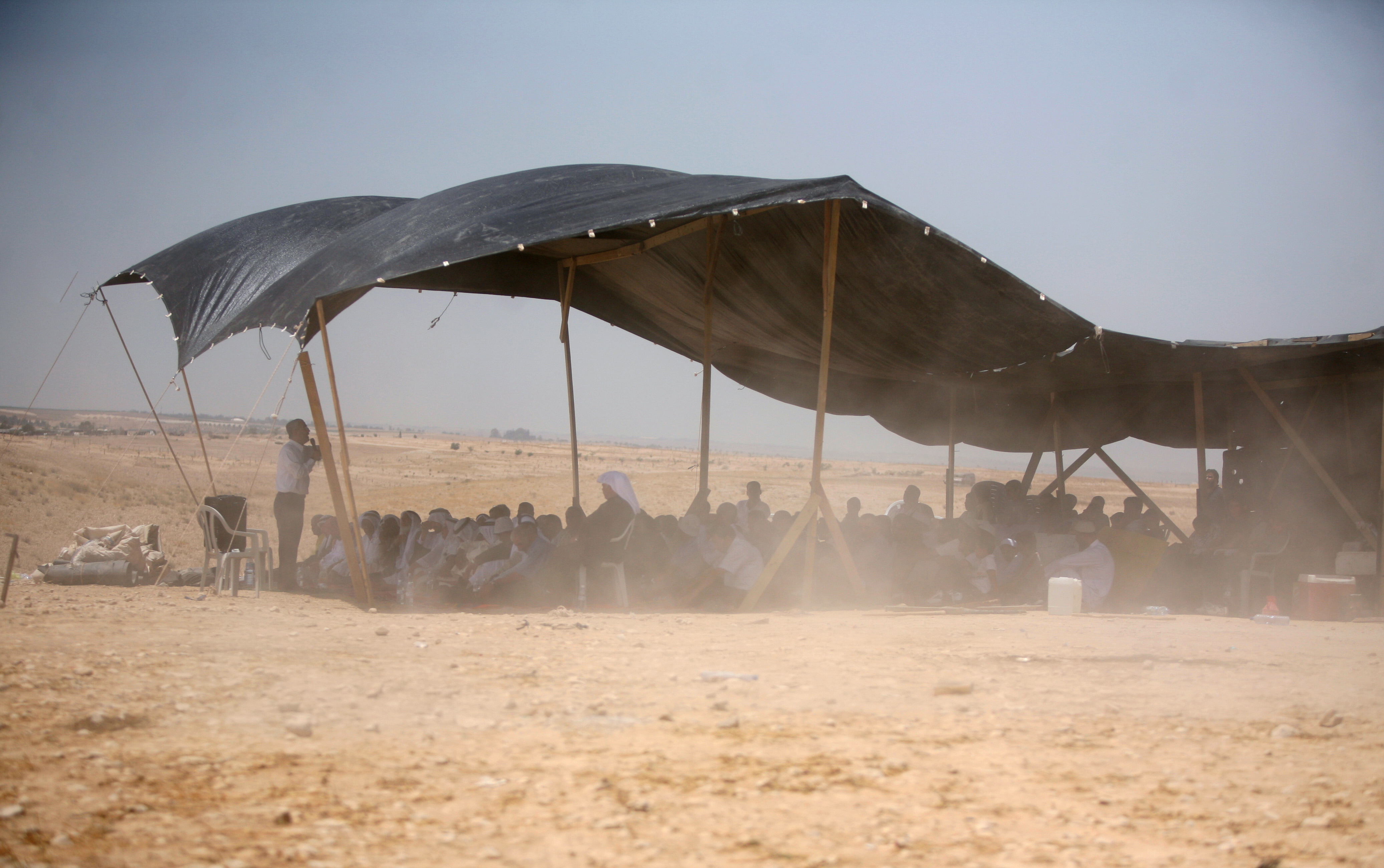
A free daily email with the biggest news stories of the day – and the best features from TheWeek.com
You are now subscribed
Your newsletter sign-up was successful
"My grandfather is there. My aunt is there. And I'll be here, God willing."
Soliman Abu-Madegham steps through the Negev dust in the cemetery at Al-Araqib, pointing to graves in the desert dirt. The cemetery is the center of Al-Araqib, but almost by default: Depending on the day, its single-wire fence and proud sign might be the only structures standing in the village.
Al-Araqib is a Bedouin community of 22 families in the southern Israeli desert. Last week, it was demolished for the 101st time — six years to the day after the first demolition. Al-Araqib is one of 35 "unrecognized" Bedouin villages in the Negev. Israel considers the area to be state land, to which the Bedouins have no legal right.
The Week
Escape your echo chamber. Get the facts behind the news, plus analysis from multiple perspectives.

Sign up for The Week's Free Newsletters
From our morning news briefing to a weekly Good News Newsletter, get the best of The Week delivered directly to your inbox.
From our morning news briefing to a weekly Good News Newsletter, get the best of The Week delivered directly to your inbox.
And so two bulldozers arrived at 5:30 a.m. on July 27, just before dawn. Family members shook one another awake, gathered their belongings, and ran outside. It's become a routine — Al-Araqib resident Aziz Al-Touri shares the news over the phone that his house has been demolished like it's just another part of saying "good morning."
By midday, three demolished huts have already been rebuilt, the remnants of the old structures left in bulldozed dirt piles. A two-year-old toddles around a pile of black tarpaulin on the ground that, until recently, had been his roof.
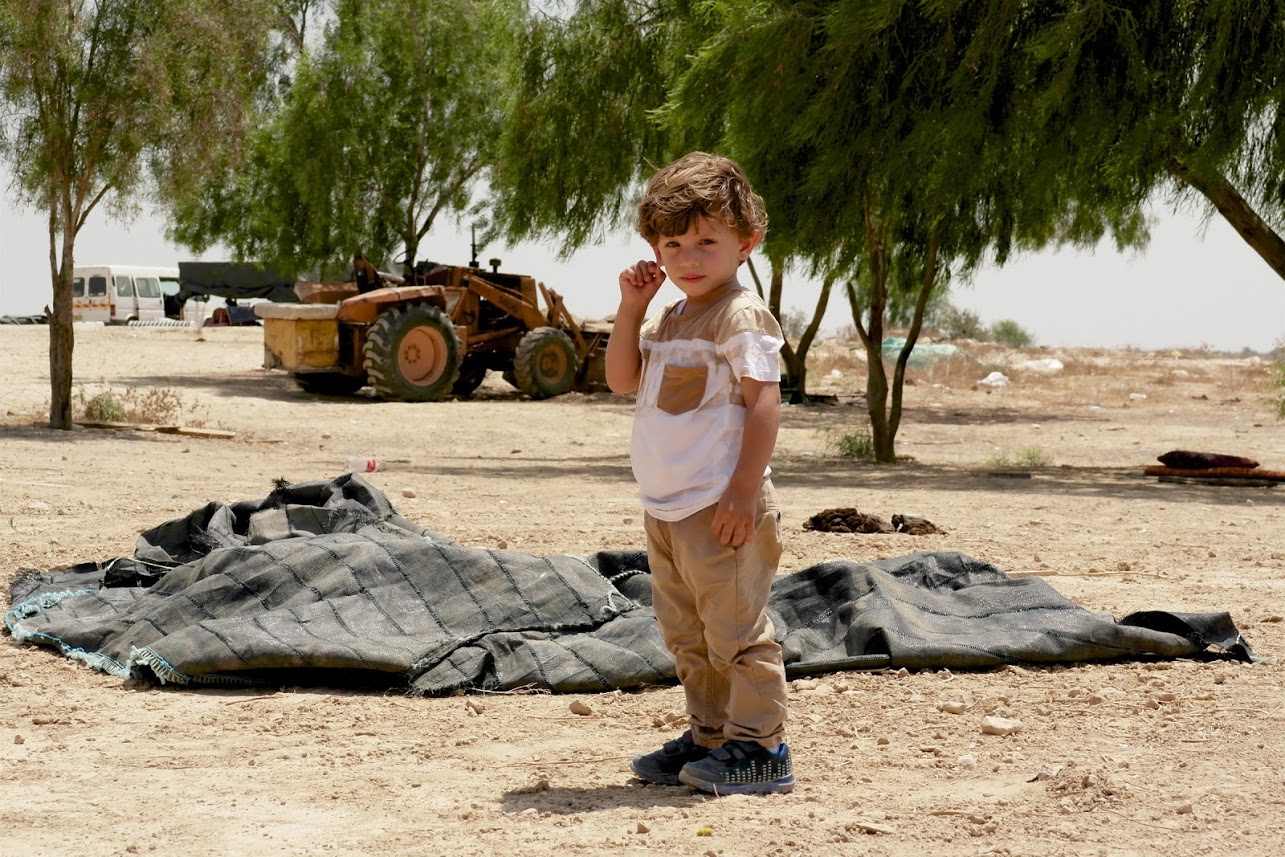
His uncle Ali relaxes in the newly-built shade on one of many multi-colored mats, sharing coffee and smoking with family and friends. Among them is Sheikh Halid Abu-Dahlan, who works in the metal industry in Rahat and helps in Al-Araqib when he can.
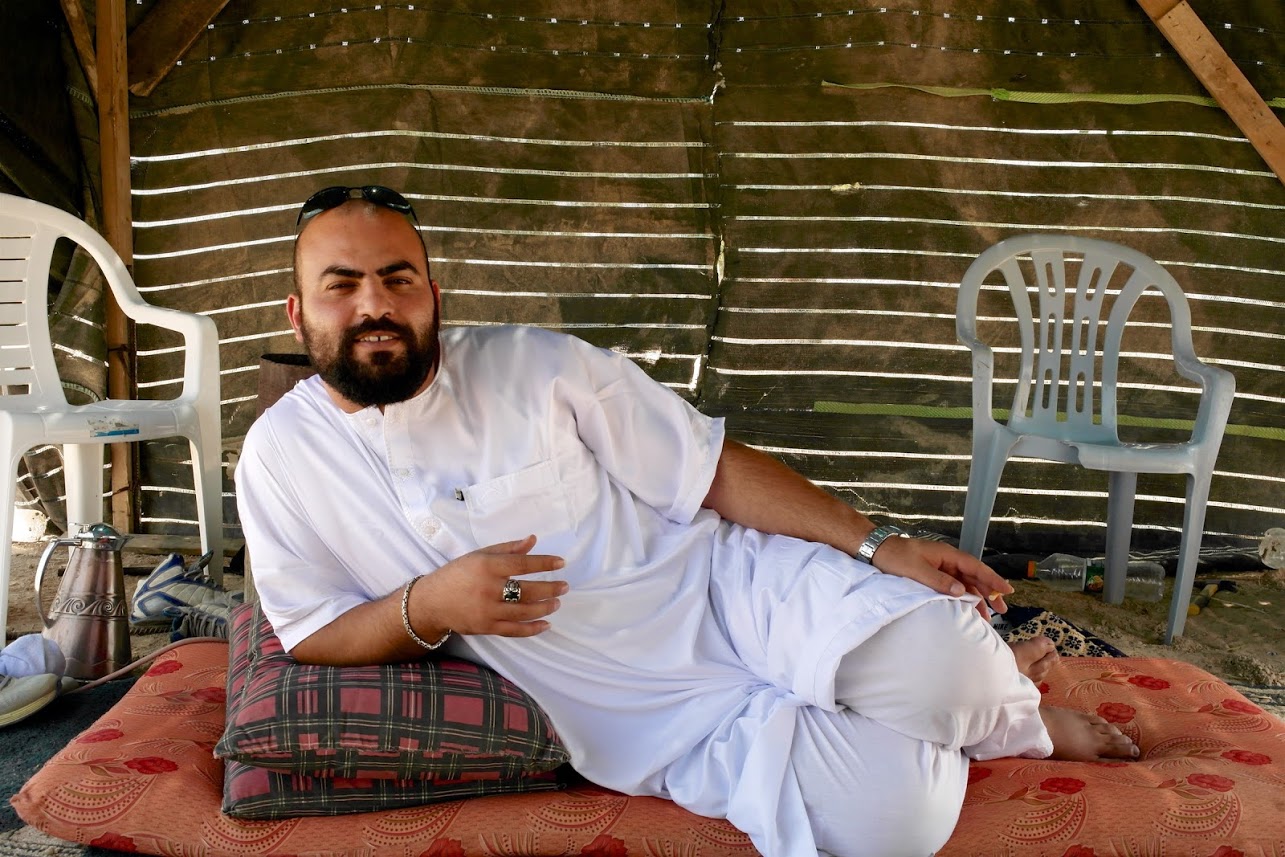
The frequent reconstruction in Al-Araqib is mostly done with outside help, as Aziz and his father, village leader Sheikh Sayyah Al-Touri, are barred from taking part.
A free daily email with the biggest news stories of the day – and the best features from TheWeek.com
"One day they arrested me and took me to the judge, to the court," Aziz says. "And the court says, 'You, Aziz, you cannot build your house by your hand.'"
In the week before the 101st demolition of Al-Araqib, residents and activists faced off with bulldozers and police. One 12-year-old girl was sent to the hospital and still can't speak about what happened.
"Trauma," her mother explains. "We use the same word in Arabic, the same word in Hebrew."
Since 2010, the charity Jewish National Fund has pushed the Israel Land Administration to clear the state land and allow them to cultivate trees. But the families of Al-Araqib won't go quietly. Indeed, they fear that if they leave the land even for a moment, they'll never get it back. "We stay here 24 hours a day," Aziz says.
Though it's not marked on most maps, Al-Araqib sits just off the Yitzhak Rabin highway, near the small towns of Lehavim and Rahat. The families of Al-Araqib access the village through a car-sized gap in the highway guardrail that looks like it was the result of an accident.
From the highway, a gravel and dirt road curves over a slight hill and levels out in a dusty one-acre clearing. Above the clearing is the cemetery and one communal hut. Below the clearing is a well, one of many that Al-Araqib relies on for water.
"[Sheikh] Sayyah's great, great grandfather built the well with his own hands," says Soliman Abu-Madegham. "The water keeps us strong and, by the grace of God, there is always water." One of the young boys hauling buckets from the well pours water on the rim of the well and brushes away the dust: Scratched into the stone is "1913."
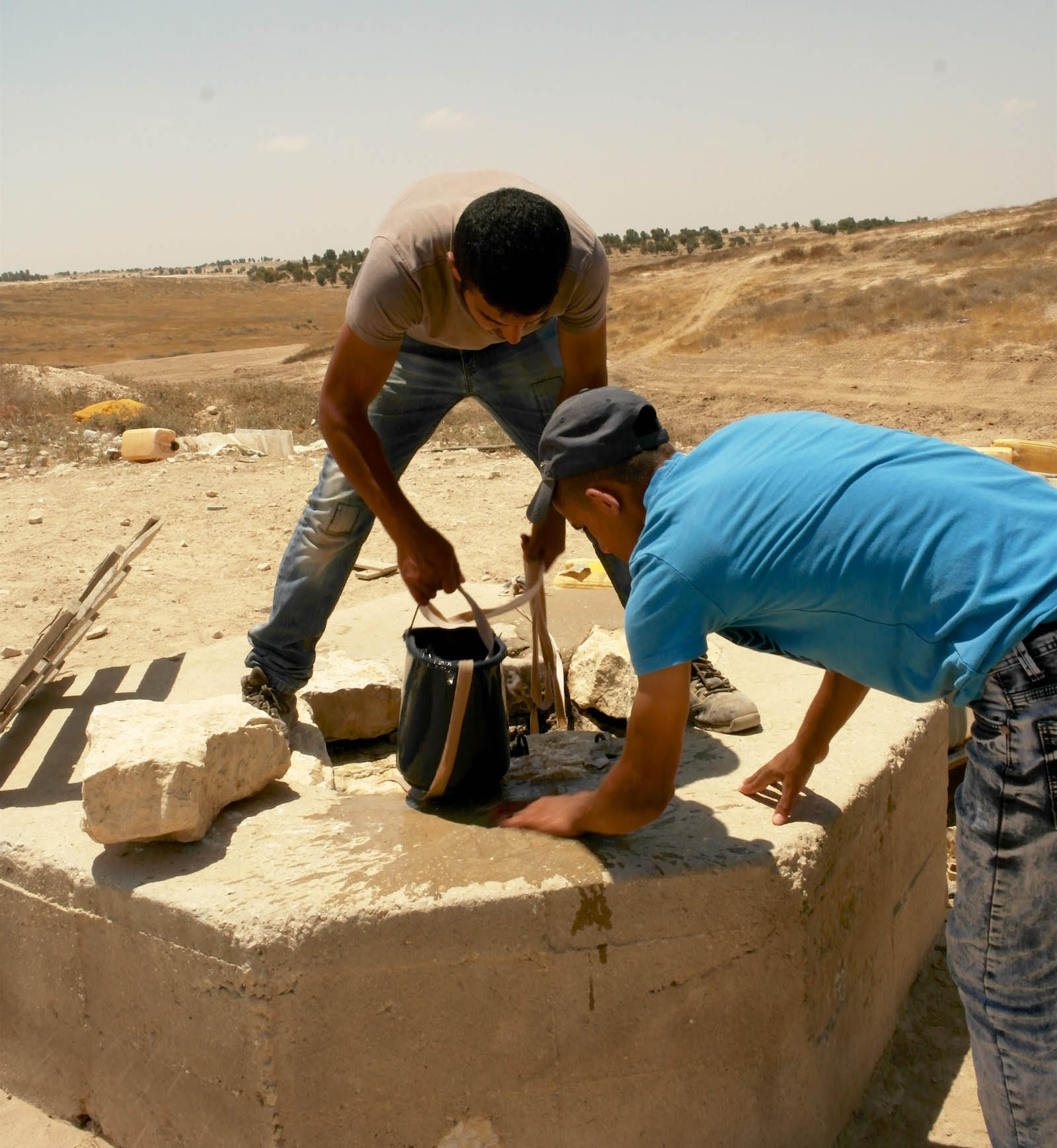
The Israel Land Administration maintains that Bedouins first settled in Al-Araqib in 1998 and only built permanent homes to combat recent attempts to clear the land. The government says that Al-Araqib never qualified as a village under Ottoman or British rule because the Bedouins never cultivated the land. This claim has been central to Israel's efforts to clear the land.
The families of Al-Araqib strongly disagree. Sheikh Sayyah maintains that his grandfather, Halid Al-Touri, purchased the land in 1906. He proudly displays receipts from taxes paid to the Ottoman and British empires. The cemetery at Al-Araqib has stood since 1914, he says.
On Sept. 25, a regional court will rule on the case of Al-Araqib and the JNF. But it's unclear whether this ruling will bring any change to the cycle of demolition and rebuilding.
Mariam Abu-Madegham is 108 years old, the oldest resident of Al-Araqib. She wears a black robe embroidered with blue and purple flowers and sits on the floor of the building by the cemetery, looking but not quite seeing. Little Ismail waddles by her and Soliman grabs him.
Soliman asks Mariam what she wants America to know about Al-Araqib. She throws her hands up, grasping at the air.
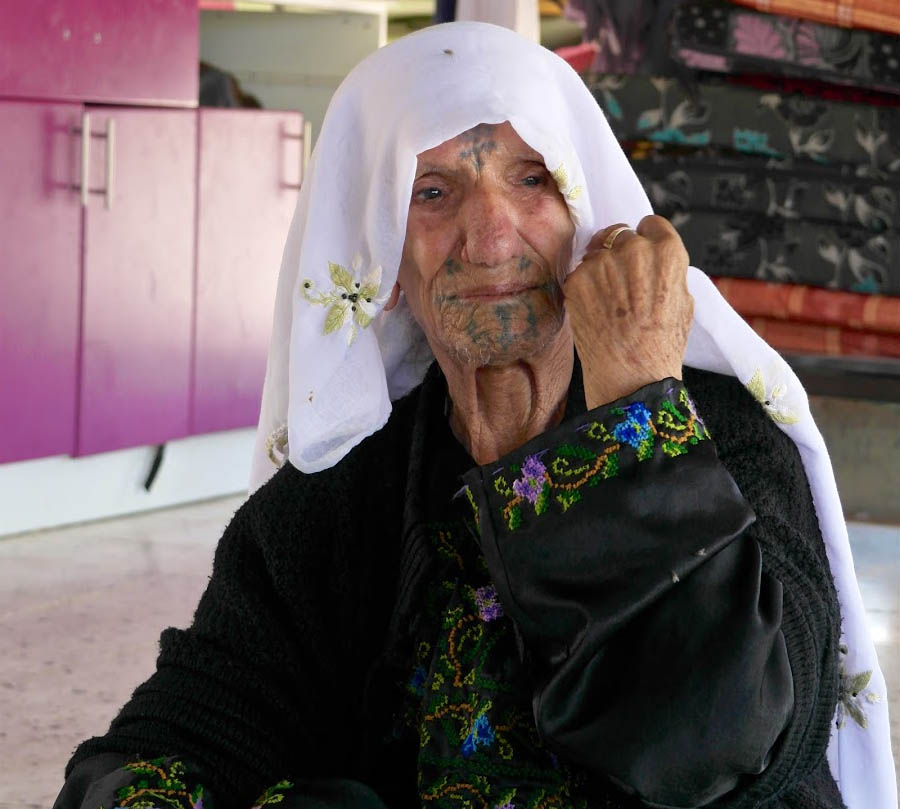
-
 The mystery of flight MH370
The mystery of flight MH370The Explainer In 2014, the passenger plane vanished without trace. Twelve years on, a new operation is under way to find the wreckage of the doomed airliner
-
 5 royally funny cartoons about the former prince Andrew’s arrest
5 royally funny cartoons about the former prince Andrew’s arrestCartoons Artists take on falling from grace, kingly manners, and more
-
 The identical twins derailing a French murder trial
The identical twins derailing a French murder trialUnder The Radar Police are unable to tell which suspect’s DNA is on the weapon
-
 Epstein files topple law CEO, roil UK government
Epstein files topple law CEO, roil UK governmentSpeed Read Peter Mandelson, Britain’s former ambassador to the US, is caught up in the scandal
-
 Iran and US prepare to meet after skirmishes
Iran and US prepare to meet after skirmishesSpeed Read The incident comes amid heightened tensions in the Middle East
-
 Israel retrieves final hostage’s body from Gaza
Israel retrieves final hostage’s body from GazaSpeed Read The 24-year-old police officer was killed during the initial Hamas attack
-
 China’s Xi targets top general in growing purge
China’s Xi targets top general in growing purgeSpeed Read Zhang Youxia is being investigated over ‘grave violations’ of the law
-
 Panama and Canada are negotiating over a crucial copper mine
Panama and Canada are negotiating over a crucial copper mineIn the Spotlight Panama is set to make a final decision on the mine this summer
-
 Why Greenland’s natural resources are nearly impossible to mine
Why Greenland’s natural resources are nearly impossible to mineThe Explainer The country’s natural landscape makes the task extremely difficult
-
 Iran cuts internet as protests escalate
Iran cuts internet as protests escalateSpeed Reada Government buildings across the country have been set on fire
-
 US nabs ‘shadow’ tanker claimed by Russia
US nabs ‘shadow’ tanker claimed by RussiaSpeed Read The ship was one of two vessels seized by the US military
